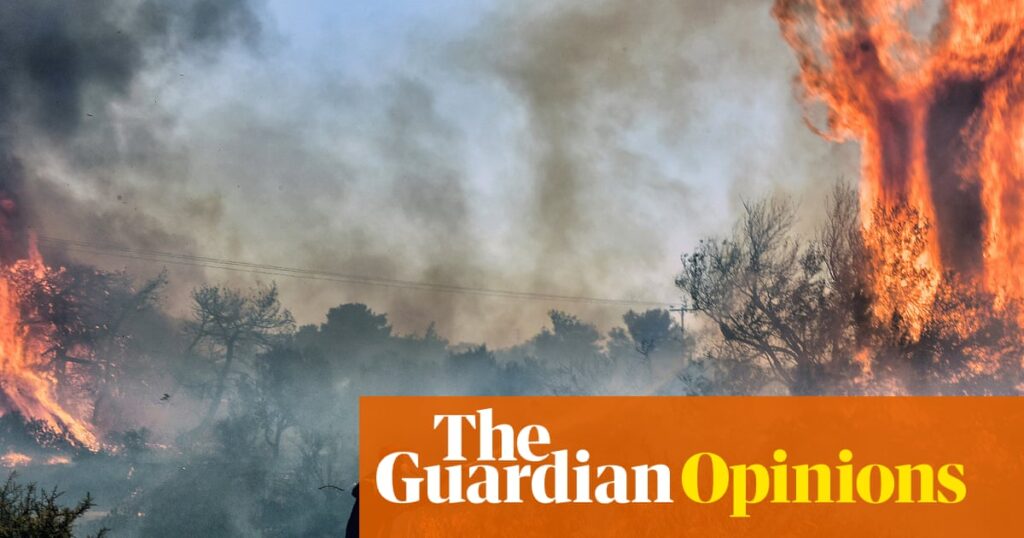
As world leaders converge in Brazil for Cop30, the first Amazonian climate summit, it is crucial to assess our progress in reducing global greenhouse gas emissions. Despite three decades of United Nations climate summits, approximately half of the carbon dioxide in the atmosphere since the Industrial Revolution has been emitted since 1990. This year marked the release of the Intergovernmental Panel on Climate Change’s (IPCC) First Assessment Report, which confirmed the threat of human-induced global warming. As scientists prepare the IPCC’s Seventh Assessment Report, they do so under the shadow of political influences that continue to hinder substantial progress.
The World Meteorological Organization’s recent reports reveal that CO2 concentrations reached a record high of 423.9 parts per million in 2024, with the growth rate from 2023 to 2024 being the largest annual increase since modern measurements began in 1957. According to the Global Carbon Project, 90% of global CO2 emissions in 2024 stemmed from fossil fuel combustion, with the remaining 10% attributed to land-use changes such as deforestation and wildfires.
The Rising Tide of Fossil Fuel Emissions
Despite calls from Cop28 for nations to transition away from fossil fuels, the reality is starkly different. Plans are underway to produce more than double the amount of fossil fuels by 2030 than is consistent with limiting global warming to 1.5°C. The continued extraction of gas is often justified as a “transition fuel” due to its lower emission intensity. However, this rationale overlooks the record-high coal burning, which accounted for 41% of global emissions in 2024.
Instead of prioritizing economic incentives to phase out fossil fuels, climate policies heavily rely on “nature positive” solutions that aim to neutralize emissions through afforestation rather than reducing industrial emissions. While protecting and expanding natural carbon sinks is beneficial, researchers argue that there is insufficient land to achieve net zero emissions through nature-based solutions alone.
Approximately 1 billion hectares—an area larger than the United States—is needed to meet net zero pledges, with over 40% of this land requiring conversion from current uses like food production to carbon sequestration projects by 2060.
The Limitations of Nature-Based Solutions
Even if a regenerative utopia could be realized, forests take time to mature and are vulnerable to fires, especially in a rapidly changing climate. As extreme heat and aridity increase, these efforts could literally go up in smoke. The science indicates that about half of the total CO2 emitted annually remains in the atmosphere, with the rest absorbed by oceans and terrestrial ecosystems. As the planet warms, these natural carbon sinks are becoming less effective, exacerbating global warming.
The reliance on land-based carbon dioxide removal (CDR) measures places undue pressure on the land sector, relieving the fossil fuel industry from the responsibility of reducing emissions. Polluters can purchase carbon credits to offset emissions, perpetuating business as usual while the energy imbalance from fossil fuel combustion destabilizes the Earth’s climate.
Beyond Net Zero: The Need for Net Negative Emissions
To limit the overshoot of the Paris Agreement temperature goals, the world must move beyond net zero to achieve “net negative emissions” by drawing down cumulative historical emissions. The Global Carbon Project reports that vegetation-based CDR currently absorbs about 5% of annual fossil carbon dioxide emissions, while technology-based CDR accounts for only a fraction of the CO2 emitted from fossil fuels.
More generous industry estimates suggest technology-based CDR accounts for around 0.1% of total global emissions.
The political distortion of net zero serves as a loophole that distracts from the imperative to eliminate fossil fuels, the primary cause of global warming. While this scientific reality should dominate Cop30 discussions, history suggests that incrementalism and political compromises will prevail, delaying the urgent need for concrete action.
A Call for Courageous Leadership
Until leaders have the courage to implement carbon pricing and decisively end the fossil fuel era, carbon emissions will continue to rise, compounding the unfolding climate catastrophe. The dilemma is clear: respond genuinely to the scientific reality or face the consequences of this moral failure for centuries to come.
As Cop30 unfolds, the world watches with anticipation, hoping for a shift from rhetoric to action. The path forward requires not only ambitious pledges but also immediate, tangible steps to reduce emissions and transition to sustainable energy sources. The stakes have never been higher, and the time for decisive action is now.







